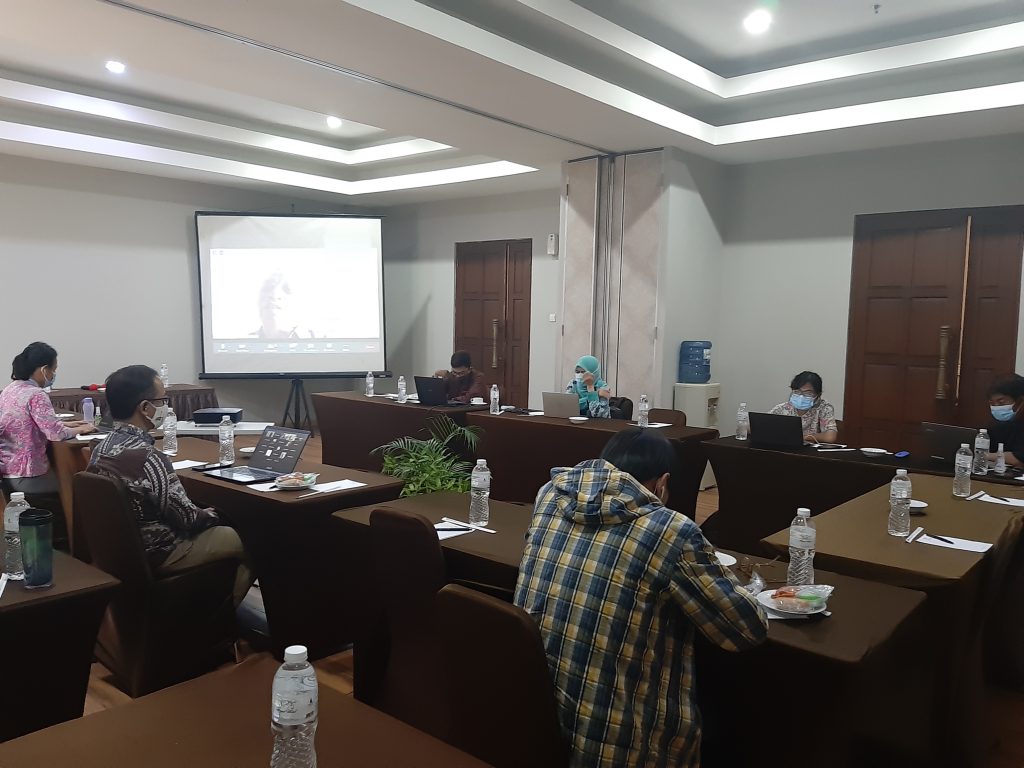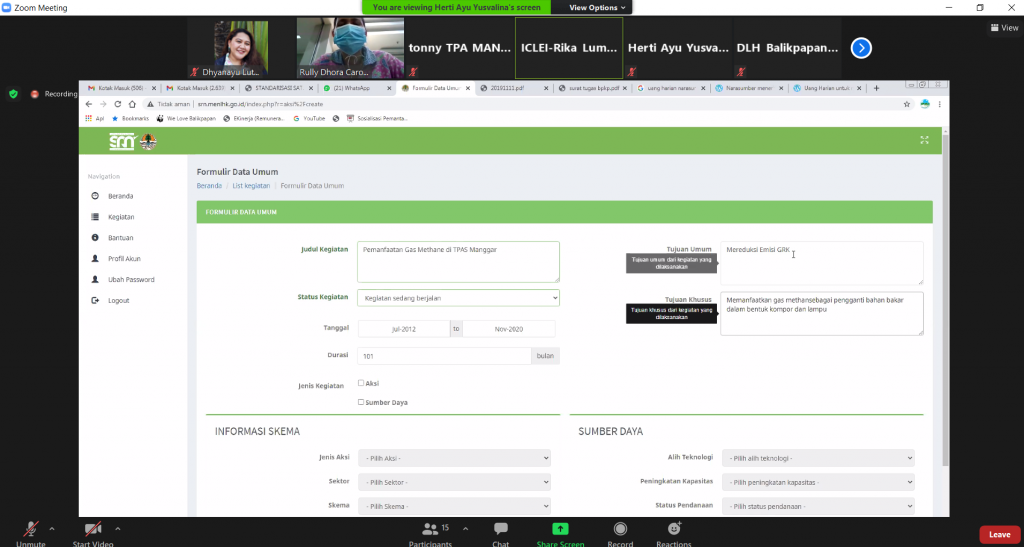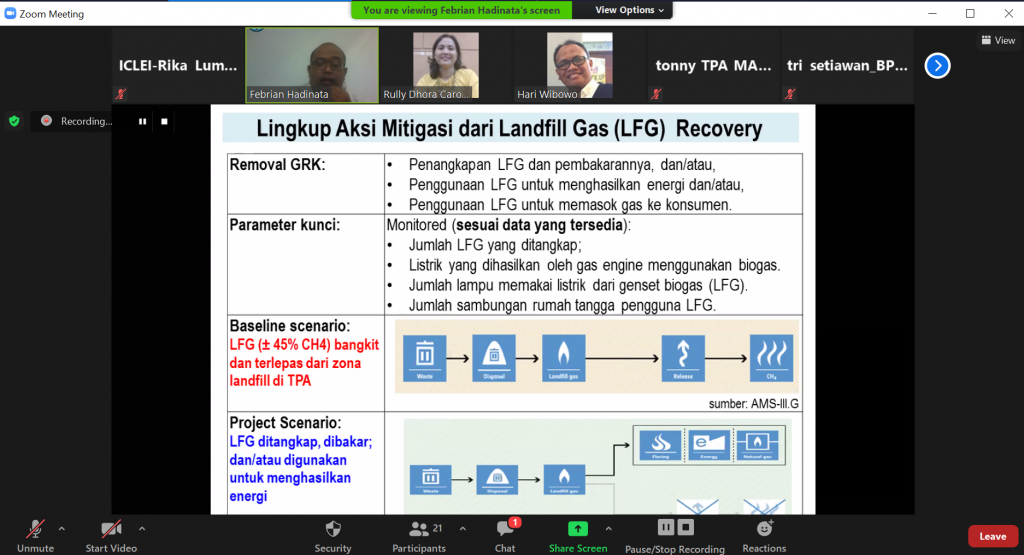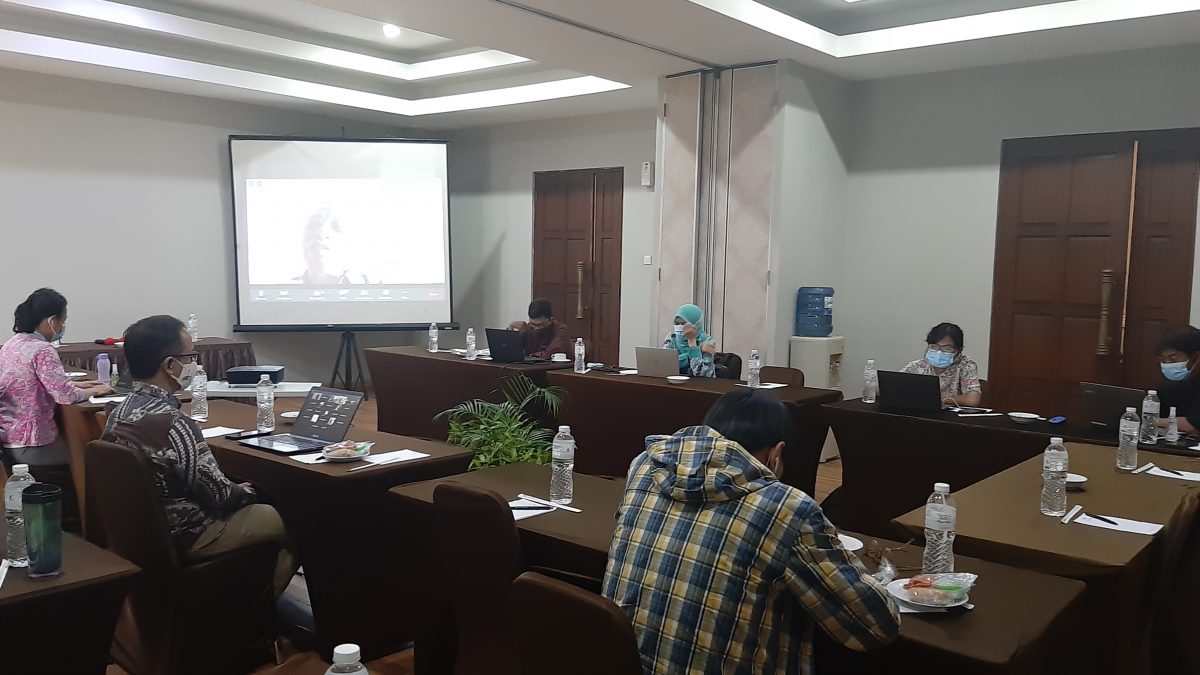
Indonesian Urban LEDS II build stronger GHGi capacity through SIGN SMART and GPC
November 27, 2020
Lao cities verify low emission development strategies for Urban-LEDS II project
December 15, 2020The Urban-LEDS II project supports the Ministry of Environment and Forestry (MoEF) in pilot testing the Landfill Gas (LFG) Recovery Methodology at Manggar Landfill in Balikpapan City, supporting MoEF Regulation No. 72 of 2017 on the Guidelines for the Implementation of Measurement, Reporting and Verification (MRV) of Action and Resources for Climate Change Control.

Jakarta, Indonesia – ICLEI – Local Governments for Sustainability Indonesia Office (ICLEI SEAS) supported the last focus group discussion (FGD) of Manggar Landfill Building Capacity organized by the Directorate of Greenhouse Gas Inventory and Monitoring, Reporting and Verification (GHGI & MRV) under the Ministry of Environment and Forestry (MoEF) held on 21 November 2020 at the Royal Hotel, Bogor City.
The FGD was attended virtually by the Environment Agency of Balikpapan City and aimed to test the four modules of the Landfill Gas (LFG) Recovery Methodology as the supporting instrument in implementing the MRV processes of the identified mitigation actions.
Activity data availability for selecting the appropriate module of LFG Recovery Methodology at Manggar Landfill
The MoEF’s methodology panel team is developing the LFG Recovery Methodology by simplifying the Approved CDM-AMS.III G “LFG Methane Recovery” which aims to align with Indonesia’s context in terms of the default value to be applied and activity data availability at site level. The methodology consists of four (4) modules to calculate the GHG emissions reduction with the following applicability:
1.Generation of electricity and/or heat by measuring the gas flow rate.
2.Generation of electricity without measuring the gas flow rate.
3.Generation of electricity without measuring the gas flow rate and electricity production.
4.Utilization of LFG recovery for cooking purposes without measuring the gas flow rate.
Mr. Tonny Hartono, Head of Implementation Technical Unit of the Manggar Landfill shared that in 2020, captured methane gas was used to replace liquefied petroleum gas for household cooking in 132 houses and to power 10 posts of public street lighting. Additionally, LFG has also been flared in seven (7) points and is being used by twelve small and medium enterprises near the landfill. The estimated GHG emission reduction from Manggar Landfill amounts to 505 tCO2e annually.
Recommendations to climate-proof Balikpapan
The installation of measuring instruments such as gas meter and kWh meter is highly recommended around the Manggar Landfill to meet the need for accurate activity data, following the principles of clarity, transparency, and understanding recognized at the national and international levels. According to the Balikpapan Environment Agency, the procurement for such measurement equipment has been proposed for budget allocation and is expected to receive approval. In addition, a suggestion for the Balikpapan Environment Agency is to involve the local university or potential third party service provider to perform the analysis of LFG composition and evaluate the LFG stove efficiency regularly. Furthermore, it is notable that climate actions shall be reported into the National Registry System as part of MRV processes.
Learnings for the Ministry of Environment and Forestry
By pilot testing the module of LFG methodology in the Manggar Landfill, MoEF discovered that the LFG utilization is not only used by the community but also by the small and medium enterprises which led to the expansion of module 4. In his closing remarks, Mr. Hari Wibowo, Directorate of GHGI and MRV, Ministry of Environment and Forestry conveyed that “the published methodology is not fixed, [as] it is a living document. Inputs, comments, and suggestions from the users of the methodology are welcome in order to enhance the quality of National MRV processes.”
The preparation and testing of GHG emissions reduction methodology are also part of the Government of Indonesia’s efforts toward the preparation of the Indonesia Certified Emission Reduction (ICER) Mechanism and domestic carbon market in the future.

The MoEF is assists the Balikpapan Environment Agency in filling out the form for the identified mitigation action at Manggar Landfill in the National Registry System 
Mr. Febrian Hadinata, national solid waste management expert explains the scope and the applicability of the LFG Recovery Methodology as well the baseline and project scenarios.
Recommended links:

